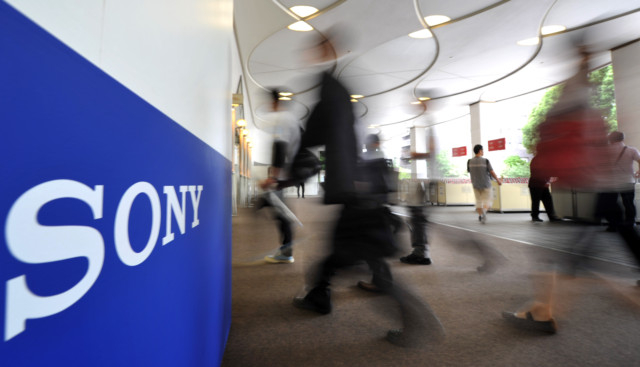
Tokyo: Sony said on Tuesday it has rejected a US hedge fund’s proposal to spin off part of its profitable entertainment arm, but the billionaire behind the offer vowed to continue efforts to overhaul the struggling Japanese electronics giant.
Daniel Loeb, who says his US hedge fund Third Point has amassed the largest stake in Sony, had called on Sony executives to list up to 20 per cent of the entertainment unit, which includes a major music label and a Hollywood movie studio.
The hedge fund executive, known for his aggressive style in stoking change at target firms, had argued the spin-off would make the entertainment unit’s executives more accountable and help improve profitability.
“The Sony board of directors has unanimously concluded that continuing to own 100 per cent of our entertainment business is the best path forward and is integral to Sony’s strategy,” President Kazuo Hirai said in a letter to Loeb.
But “we... will continue to give full consideration to any constructive feedback from our valued shareholders,” Hirai added.
Sony shares dropped after the announcement, which adds to a growing list of failed attempts by foreign investors to shake up corporate Japan.
On Tuesday, Loeb’s firm said it would continue efforts to overhaul Sony’s corporate structure.
“Third Point looks forward to an ongoing dialogue with management and intends to explore further options to create value for Sony shareholders,” it said in a statement.
Clooney’s backing
Sony won some high-profile backing last week from Oscar-winning US actor George Clooney as he called Loeb “a hedge fund guy who describes himself as an activist but who knows nothing about our business”.
Clooney is directing and starring in the film “Monuments Men”, which is being distributed by Sony Pictures.
Shareholder activism is not firmly entrenched in Japan like it is in Europe and the United States, dealing an early blow to Loeb’s bid to stoke change at Sony.
Major Japanese firms often hold large investments in each other to prevent hostile takeovers while the cloistered corporate sector remains deeply suspicious of foreign private equity firms.
Among the high-profile clashes was a failed effort by US fund Steel Partners to oust top executives at brewer Sapporo Holdings.
In June, Hirai told an annual investor meeting in Tokyo that the company’s board was studying the spin-off proposal from “all sorts of angles”, but said it would not be rushed into a decision. Sony’s chief had previously expressed reservations about breaking up the company.
On Tuesday, Hirai said the firm would prefer to raise cash, if necessary, through means other than selling off parts of the vast company.
“There was no surprise in the letter, which was in line with Sony’s previous comments,” said Hiroshi Sakai, chief economist with SMBC Friend Research Centre.
But “it is likely to continue its strategy by calling on other investors to join its bid,” he added.
In a quarterly letter to investors last week, Third Point said the Sony division “remains poorly managed, with a famously bloated corporate structure, generous perk packages, high salaries for underperforming senior executives, and marketing budgets that do not seem to be in line with any sense of return on capital invested”.
He added that “drastic — rather than incremental — action is required”.
Sony’s Tokyo-listed shares dropped 4.58 per cent to 2,039 yen on Tuesday.
Sony’s rejection of the deal came after the electronics giant said last week it had swung back to a net profit of $35 million for the April-June quarter, reversing a year-earlier loss as it boosted its annual sales forecast.
It also saw a small operating profit in its dented television business and said smartphone sales were picking up.
Sony and its domestic rivals including Panasonic and Sharp have been undergoing painful restructurings aimed at stemming years of record losses largely tied to their electronics units.









